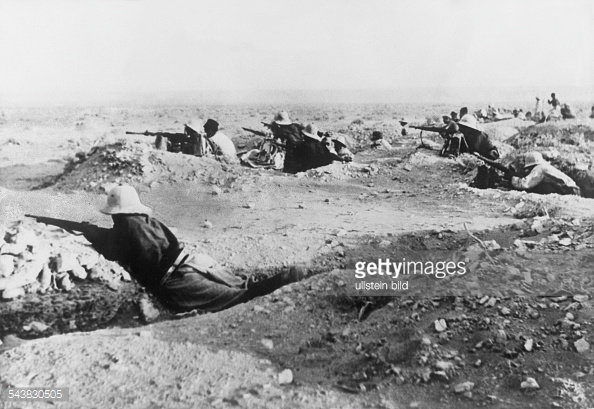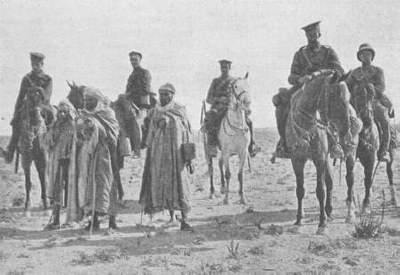The Most Obscure Corner of the War; Desert Warriors Tie Down 30,000 British Troops.
Elsewhere, A Tale of Gallantry and Heroism
Special to The Great War Project
(12-15 November) Now a story about what is without doubt the most obscure battlefield of the First World War…
Libya.
A century ago, the North African territory of Libya is an Italian colony, Italian since the Kingdom of Italy seizes Libya from the Ottoman Empire in 1912, two years before the Great War breaks out.
The Ottomans along with their German allies are encouraging the Senussi Arab desert tribesmen to lead a Muslim jihad against the British and Italians. The goal: an invasion of neighboring Egypt from the west to spark insurrection there.
The Turks have their eye once again on the Suez Canal, which they are unable to wrest from the British in 1914.
It’s one of the least remembered war zones, according to historian Martin Gilbert, but of great strategic importance nevertheless.
On November 17th one hundred years ago, a local indigenous tribe and religious sect, the Senussi, rise up against the Italians occupying Libya and against their ally Britain in neighboring Egypt.
“Supported by the Turks,” writes Gilbert, “the Senussi opened fire at a British-Egyptian border post….Two days later 300 tribesmen occupied a monastery.”
“British troops were sent into action,” reports Gilbert, “but the tribesmen, with the desert as their hiding place, continued to cause considerable aggravation.”
The Senussi are able to cross the border into Egypt and attack the British shortly after German submarines attack and sink two British ships nearby. The Germans hand over the surviving crew members to the Senussi.
One British officer later writes of the Senussi uprising: “In some respects this was the most successful strategical move made by our enemies of the whole war, for these odd thousand Arabs tied up on the Western Frontier for over a year some 30,000 troops badly required elsewhere, and caused us to expend on desert railways, desert cars, transport etc. sufficient to add” far too much to the cost of defending the region.
Elsewhere about the same time a century ago, another extraordinary story, this time of heroism, reported by historian Martin Gilbert. Two British pilots flying over western Turkey drop their bombs on a railway junction. One of the planes, piloted by British flyer G.F. Smylie, is hit by Turkish anti-aircraft fire.
“He made a forced landing,” writes Gilbert, “could not start up his plane, and disabled it. “
The second pilot, Richard Bell Davies, “seeing this from the air, landed nearby, grabbed hold of Smylie as a group of Turkish soldiers approached, hauled him on board and flew off with him to safety.”
“For this ‘feat of airmanship that can seldom have been equaled for skill and gallantry’ Davies was awarded the Victoria Cross.”



